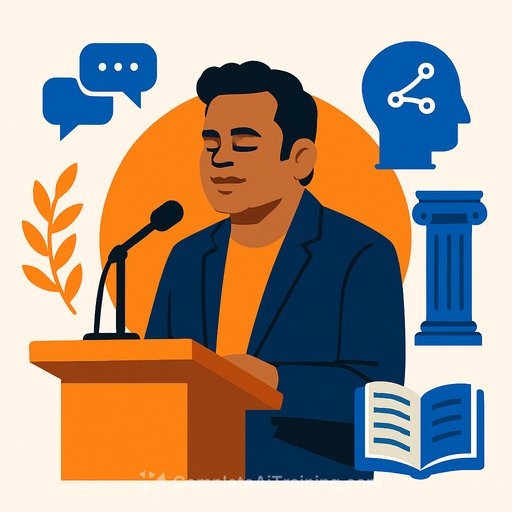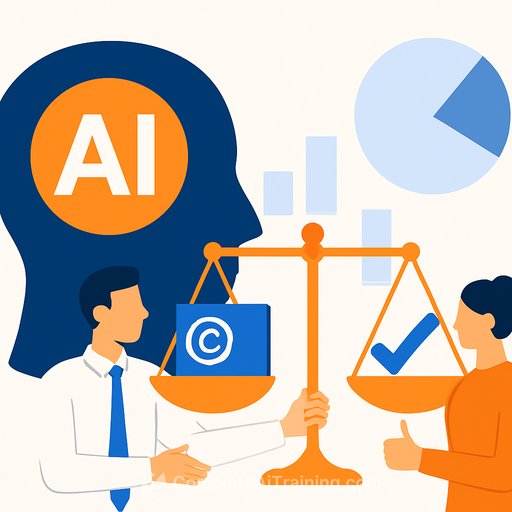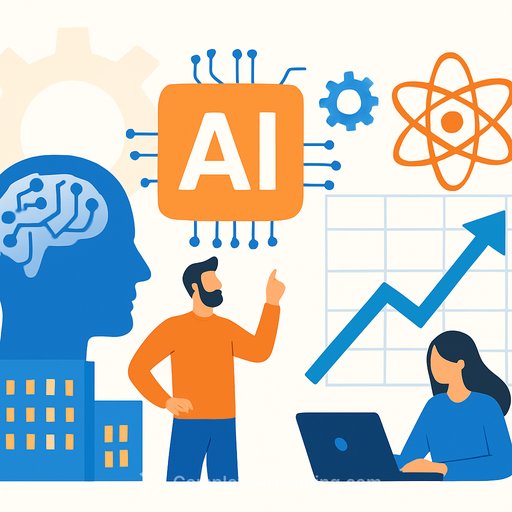AR Rahman at IGF London 2025: Creative Freedom, Cultural Renaissance, and Balanced AI Use
At the final day of India Global Forum London 2025 at Taj St. James' Court, AR Rahman made a clear case for creative freedom. His message to artists, institutions, and governments was simple: protect experimentation, fund culture, and let artists lead.
Break the frame: go beyond sight and sound
"In cinema for over 40 years now, I was bored with the same rectangle form," Rahman said. "It's just seeing and hearing-what else can we do?"
That question became Le Musk, an immersive work that weaves scent, touch, and story. "The idea came from my ex-wife who loved perfumes. I thought, why not create a theatre experience with perfume and haptics?" Le Musk is coming to London for a year-less a film, more a statement on what creative experiences can be.
Make the invisible visible: JHAALA and the future of classical arts
Rahman shifted to urgency: "Where is the next shehnai player? Where is the next Bismillah Khan Sahib? Unless we find them, recognize them, and let the world see them-they'll vanish."
That's the spark behind JHAALA, his initiative to platform and preserve Indian classical arts through technology, talent discovery, and global exposure. If you care about heritage, this is a call to seek, support, and showcase-with the same rigor you apply to your commercial work.
- Document and publish: short performances, process notes, and context.
- Fund one apprentice or collaboration a year.
- Use digital tools to archive, tag, and circulate rare forms.
For context on the legacy he referenced, see Ustad Bismillah Khan's work here.
AI: use it, don't worship it
Rahman's take on AI was direct: "AI is like Frankenstein-it just steals from human experiences, human knowledge, human art, and then puts together multiple thoughts. It's copied from us. And now it gets faster, because we feel with emotion-and it just runs on data."
His advice: "We should use it for what it is-for speeding up the mundane. Don't fear it, use it." For creatives, that means delegating grunt work, protecting taste, and keeping authorship clear.
- Automate: transcripts, first-draft summaries, file naming, asset tagging, versioning.
- Assist: moodboards, alt takes, variations, shot lists, prompts for ideation.
- Guardrails: consent-based datasets, credits, and final human review.
If you're building an AI stack for your studio, explore practical training and tools here.
Culture as an industry: learn from K-pop's playbook
Rahman pointed to policy, not just talent. "If you look at South Korea and K-pop, it emerged in the last 10 years because of government involvement and economic growth. It was a collective movement. That needs to happen with Indian music too. We need to reinvent the wheel."
Translation for creatives: organize. Build catalogs, co-ops, and cross-border partnerships. Push for public funding that treats art as export, not hobby. For background on Korea's cultural strategy, see official insights on Hallyu policy.
Creative takeaways you can act on this week
- Define your "format constraint" and break it once: add scent, touch, location, or audience participation to a piece.
- Set a "freedom budget": hours or cash reserved for experiments without client approval.
- Adopt one heritage project: record, remix, or collaborate with a traditional artist and publish it.
- Make an AI policy for your studio: what it's for, what it's not for, and how you credit output.
- Pitch one collective effort: a grant, residency, or label collab that lifts more than one artist.
The line that held the room
"The most important thing about art is freedom," Rahman said. "You can't do that with a film studio." He closed on why we do this work at all: "Music transcends religion. It heals. It connects. It's a shared soul."
About IGF London 2025
IGF London 2025 gathered over 100 speakers and 1,000 participants across iconic venues, covering technology, trade, culture, and commerce. This edition marked a major milestone: a decade since Prime Minister Narendra Modi's 2015 visit to the UK, with the two nations finalising a Free Trade Agreement.
IGF provided an international platform to celebrate this development, examine its impact, and map the next phase of UK-India collaboration. In a time loud with algorithms and agendas, sessions like Rahman's offered a reset: art leads when it's free to experiment.
Your membership also unlocks:






